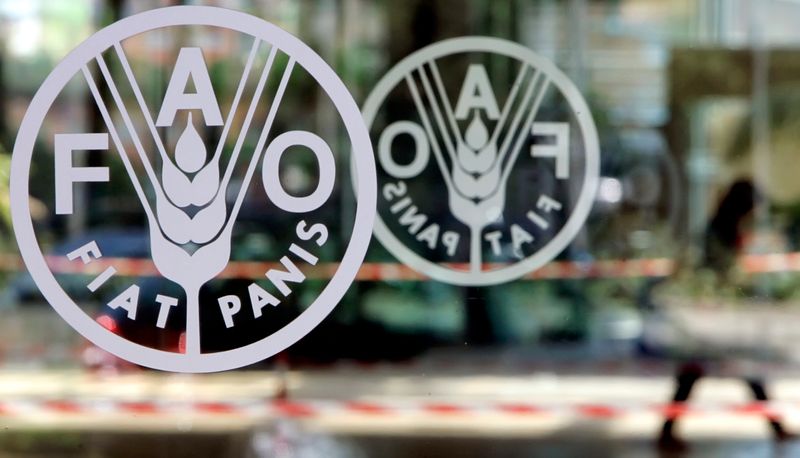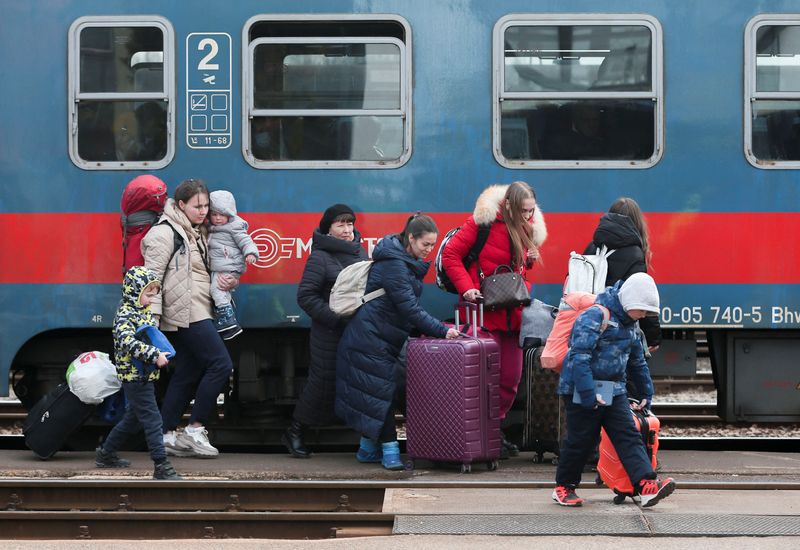
Putin's invasion of Ukraine could have severe consequences for the world's food security, according to the Food and Agriculture Organization of the United Nations (FAO), which warns that war, plus the effects of the pandemic can generate an unusual increase in food prices and put food prices on the market. millions of people at risk of severe hunger.
According to Máximo Torero, FAO's chief economist, food prices had already reached significant increases before Russia's invasion of Ukraine, mainly due to the effects of the pandemic, but the additional strain of the war could reach the global food system to disaster.
Wheat prices reached record highs in recent days, although they have fallen slightly. Overall, food prices have been rising since the second half of 2020, according to FAO, and reached an all-time high in February, after wheat and barley prices rose by nearly a third and rapeseed and sunflower oil prices rose more than 60% during 2021. The price of urea, a key nitrogen fertilizer, has more than tripled in the last year due to rising energy prices.
At least 50 countries depend on Russia and Ukraine for 30% or more of their wheat supply, and many developing countries in North Africa, Asia and the Near East are among the most dependent.
Poor countries are the hardest hit by price increases. Many of the poorest countries were already struggling financially, and some were facing debt crises, amid the pandemic.

“My biggest fear is that the conflict will continue, then we will have a situation of significant levels of rising food prices, in poor countries that were already in an extremely weak financial situation due to Covid-19,” said Torero, one of the world's leading experts in food and hunger in an interview with The Guardian. “The number of chronically hungry people will grow significantly, if that is the case.”
The Covid-19 pandemic has reduced the response capacity of developing countries. “Food systems could be more resilient in 2019, although they had problems at first,” Torero said. “Stocks were very high at the beginning of Covid-19, so there was capacity to respond to the shock. But having Covid-19 for two years has weakened the resilience of food systems.”
The war in Ukraine presents multiple threats to food security that will be felt around the world, according to FAO Ukraine and Russia are major food exporters, so the war directly threatens the supply of commodities such as wheat, corn and sunflower oil.
Ukraine alone supplied 12% of the world's wheat before the war and was the largest producer of sunflower oil. About two-thirds of the country's wheat exports had already been delivered before the invasion, but the rest is now blocked and farmers may not be able to continue with spring planting or harvest grain crops in the summer.
But the crisis is deeper: Ukraine and Russia are also major producers of fertilizers, whose prices have already skyrocketed due to high energy prices, and the war is driving energy prices even higher, with a greater impact on agricultural production costs.

There is also a threat that countries will close their markets in response. The worst increases in food prices in recent history occurred between 2007 and 2008 and resumed from 2010 to 2012, caused by high energy prices followed by bad weather. Those sudden peaks contributed to political unrest and upheaval, the impacts of which are still being felt.
G7 agriculture ministers from the richest countries met Friday to coordinate a response, urging countries to keep markets open.
In the past crises Russia played an important role, with restrictions on exports, especially in 2010 when Vladimir Putin banned all grain exports after the drought in key growing regions. If Putin were to restrict or redirect exports, after his manipulation of energy exports in the run-up to the war, it would cause serious problems in world food markets.
“Right now, we can't say that prices are higher than in 2007-08, but it may get worse. If the energy and fertilizer situation becomes more serious, it will be worse than in 2007-08. If you add to that the potential for export restrictions, it will get worse,” Torero told the British media outlet.
“Of course Russia can do whatever it wants with its production. If they were to restrict exports, then the situation would worsen. Prices would increase even more,” he added. “We urge all countries, not only Russia but all countries, not to place export restrictions.”
Torero urged countries to keep food systems open and share information on food stocks, crops and availability, to try to level supply issues. Countries that were in a position to produce more should do so, he said.
“Right now, the problem in the short term is availability. We need to find ways to fill the production gap caused by the war,” he said. “We believe that the gap can be closed a little, but not 100%. Countries should also try to diversify their suppliers.”
Even if the conflict were resolved quickly, the impacts would be felt for some time, he said. The rising price of fertilizers, for example, will have a delayed impact, reducing crop yields that are yet to come, as farmers are starting to use less now.
“These are the problems we will see next year,” said Torero.
KEEP READING
Últimas Noticias
Debanhi Escobar: they secured the motel where she was found lifeless in a cistern

The oldest person in the world died at the age of 119

Macabre find in CDMX: they left a body bagged and tied in a taxi
The eagles of America will face Manchester City in a duel of legends. Here are the details

Why is it good to bring dogs out to know the world when they are puppies



